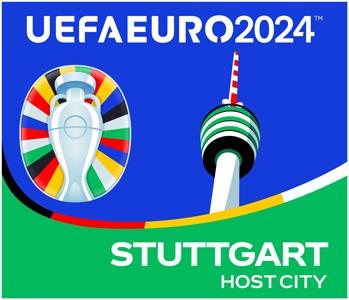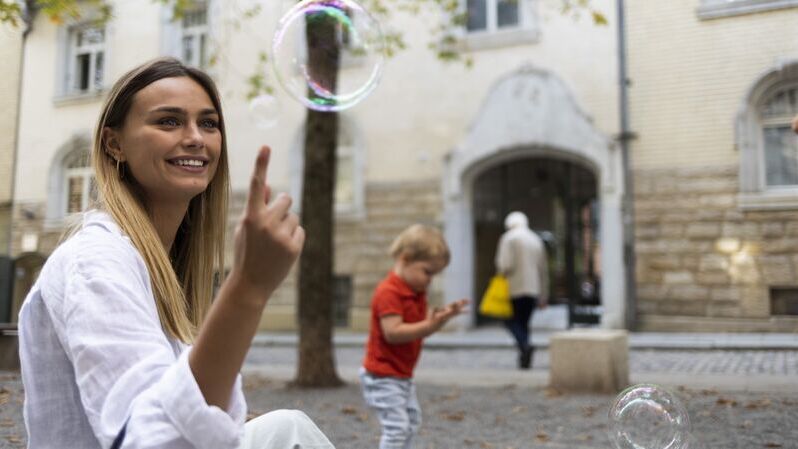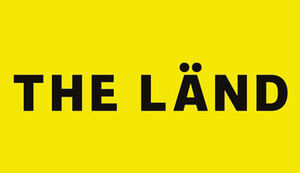
Taking responsibility seriously
Travel volume, transport, energy consumption, waste management: a major event such as the UEFA EURO 2024 has a direct impact on the environment and the climate.
As Host City Stuttgart, we wanted to minimise the negative impact of the tournament on the environment as much as possible. The main aim was to reduce emissions from the event. Among other things, by doing the following:
- We promoted and advertised sustainable mobility (e.g. public transport, cycling)
- We used renewable energies wherever possible
- We reduced refuse in the Fan Zones using an elaborate waste concept and, where possible will be recycling or reusing it.
- As part of an impact study, a carbon footprint will be drawn up for the tournament in order to make the measures quantifiable.
Rethinking mobility
The transport sector is one of the main
drivers of CO2 emissions at an event like UEFA EURO 2024,
with many fans travelling by plane from abroad. They are responsible
for around 70 per cent of total emissions. This makes it all the more
important that our employees, volunteers and fans travel to and from
the Arena Stuttgart and the Fan Zones within our host city mainly by
environmentally sustainable means of transport. Our employees and
volunteers received free tickets for public transport.
To make it more attractive for our
visitors to use public transport in Host City Stuttgart, the
frequency of public transport services was increased and
operating times were extended. The stadium ticket included the use of
public transport. Cycling was also consistently promoted as part
of the UEFA EURO 2024 in Stuttgart: There were 800 additional bicycle
parking spaces in the immediate vicinity of the event locations.
Sharing is caring
Thanks to a professional waste concept, plastic and food waste could be reduced in our fan zones. It was based on the "4 r's" of the circular economy – reduce, reuse, recycle and recover. Some of the measures:
- Waste was separated at the entrance to the public viewing. Deposit containers for the disposal of glass and plastic were available.
- Waste was collected and disposed of separately in the catering and backstage areas.
- Drinks were served in reusable cups.
- Our visitors were requested not to throw their cigarette butts on the ground, but to put them in the ashtrays provided to protect the environment. The butts were then disposed of properly.
To avoid food waste, we worked together with the association Foodsharing. Volunteer "food savers" collected leftover food from our Fan Zones directly from the caterers. Either for their own use or to distribute to those in need.
Solar energy, shaded areas and green offices
New jobs had to be created for our UEFA EURO 2024 employees. The sustainable solution: a container building equipped with a photovoltaic system. Among other things, it scored points for optimum reusability and climate-friendly transport optimisation. The south side was shaded using plants. The fan zones were also going green: The market square had green seating areas. These provided natural shade and cooling. In addition, the fan zones were supplied with green electricity wherever possible.





